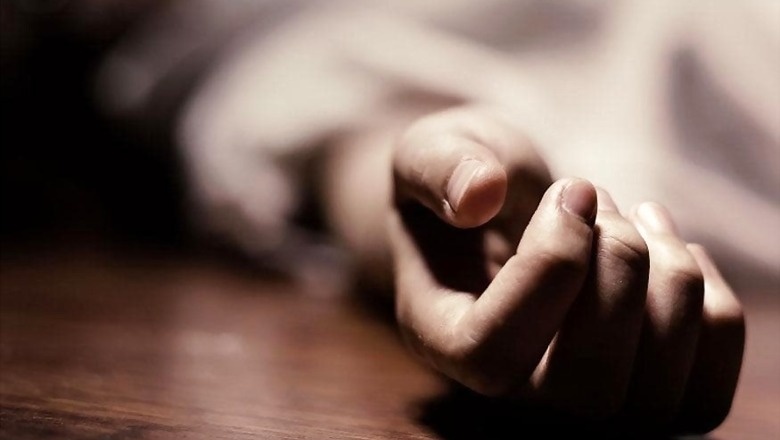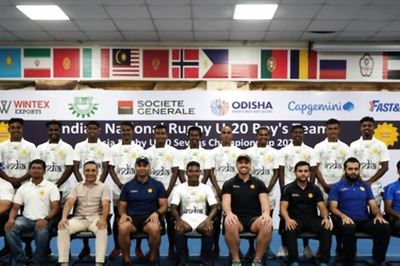
views
Surendra Kumar Das, a 30-year-old 2014 batch Indian Police Service (IPS) officer from Uttar Pradesh cadre, died Sunday after battling for life for five days in a Kanpur hospital. He had consumed poison to end his life.
His death reminded me of August last year when Mukesh Pande, a 29-year-old 2012 batch Indian Administrative Service (IAS) officer from my native home Bihar ended life on the railway track in Ghaziabad. His severed body was found on the tracks. In his suicide note, Surendra cited “family problems”. Mukesh had said he was fed up of his life.
Two more top ranking government officials committed suicide this year. Binny Sharma, a 35-year-old Indian Revenue Service woman officer, who was a deputy commissioner of Income Tax department, hanged herself to death at her home in Jaipur last month. And in May this year, 50-year-old IPS officer Himanshu Roy from Maharashtra cadre, shot himself after battling cancer.
The causes for their suicide look different, but there is one common compelling thread - “Desperation, desolation and extreme distress.”
These persons were not failures in life or profession. These were successful people - among the best and most brilliant in the nation. As someone who was once part of country’s coveted Civil Service, I know firsthand how difficult it is to crack the exam. Millions dream to reach there. Hundreds of thousands write the exam every year, but only a very few are selected after rigorous three stage selection process.
On World Suicide Prevention Day, the names of Himanshu Roy, Binny Sharma, Surendra Das and Mukesh Pande are part of a chilling statistic - “completed suicide”.
For someone who has lived 60 years with suicidal tendencies, I understand what goes inside the mind “when you just do not want to live”.
Suffering from a severe mental illness (Bipolar Disorder), there have been occasions when I was on the brink of taking my life. Reports say that 10-15% of sufferers of bipolar disorder kill themselves, but destiny saved me.
I have also been lucky. My rainbow coalition, family, friends and sometimes strangers, have saved my life. They taught me the lesson - when all seems lost in life, just one conversation with someone can take you back from brink of disaster.
Every single suicide is a humongous disaster. Undoubtedly, it is a tragic end of a life but it also devastates family and friends left behind. Often to those who end their life, the final exit looks like the permanent solution, but sadly every single suicide is preventable.
Even though the suicides of senior government officers made national headlines, most suicides in India are unaccounted for. In fact, suicide and attempt to suicide are already amongst the fastest growing epidemics in the country. Soon it could be a pandemic and we as a nation have no national strategy to counter it.
The annual suicide statistic is published by National Crime Record Bureau (NCRB), which was established to be a repository on crimes and criminals. Its latest available data for the year 2015 shows annual suicides in 2015 stood at 1.33 lakh, which is lower than 1.35 lakh in 2011.
This reduction should make us a happy nation. But we are a nation that considers ignorance is bliss. The NCRB data is often flawed and at best, half-truth. A better indication of number of Indians committing suicide comes from the now famous WHO (2014) study ‘Preventing Suicide - a Global Perspective’. This study says that in 2012, 33% of global suicides were in India and it put the figure at 2.58 lakh.
Whether we take NCRB data or WHO data, in my opinion, both are under estimations and the principal reasons are the stigma around suicide and our inability to count death properly in the country.
It’s time for us to accept our children are committing suicide, farmers and housewives are ending life, bureaucrats, technocrats and doctors are killing themselves, and so are our armed forces personnel.
Last year in a small study of 50,000 people, it was found that those who committed suicide in the six-month period assessed ranged from eight years to 85 years. But the largest number of suicides are in the 15-29 age group.
Suffices to say - no caste, class, age or occupation is today safe from suicide. It has become the equal opportunity epidemic. We need to act today as tomorrow will be too late.
The problem is our denial to acknowledge this as a serious problem. We have naturally taken path of least resistance that translates to no action to stem the tide while the incidence of suicide and suicide attempt is growing fast
Today on World Suicide Prevention Day, some committed souls and few NGOs will talk of preventing suicide. There will be workshops and conferences in few metropolitan cities on the subject. The government too may make some meaningful noise today. But from tomorrow it will be business as usual.
What do we do? Where do we go from here? Last year, I had written about the what, why and how of suicide prevention in India. It pains me to say that one year has gone by, and as a nation we have not even moved an inch forward.
There’s still time and here’s what the government can do.
First, they should initiate a national survey of incidence, causes and consequences of suicide, suicide attempt and suicidal ideation. Only this can bring out the extent of the problem.
A national survey on mental illness conducted in 2016 had brought out the true incidence of the problem in the country as it showed 16% of the population is in need of intervention for mental illness
Secondly, section 309 of the Indian Penal Code (IPC), which makes suicide attempt a crime punishable by a jail term of up to one year.
Till it is repealed the shadow of criminalization will choke the neck of suicide survivors.
Even after the bold attempt of Mental Health Care Act, 2017 to decriminalize suicide, sad commentary on nation is that decriminalisation will become absolute only if Section 309 goes in totality. What is needed is what Britain did in 1961, total decriminalisation of suicide attempt.
Today every police man knows if you survive suicide attempt he can put you in jail, but none in police know there is a clause in Mental Health Care Act that decriminalises suicide attempt.
Thirdly, without much loss of further time, please set up a National Suicide Prevention Council with experts from a broad cross-section of society. Apart from psycho social devastations to families, suicide has humungous economic cost to the nation. It’s time for the country to adopt a Mission Zero Suicide India. It may be an exceedingly difficult but not an impossible goal.
(Author is Principal Instigator “Action Group-Mission Zero Suicide India”. He also was Member Government of India Mental Health Policy Group)


















Comments
0 comment